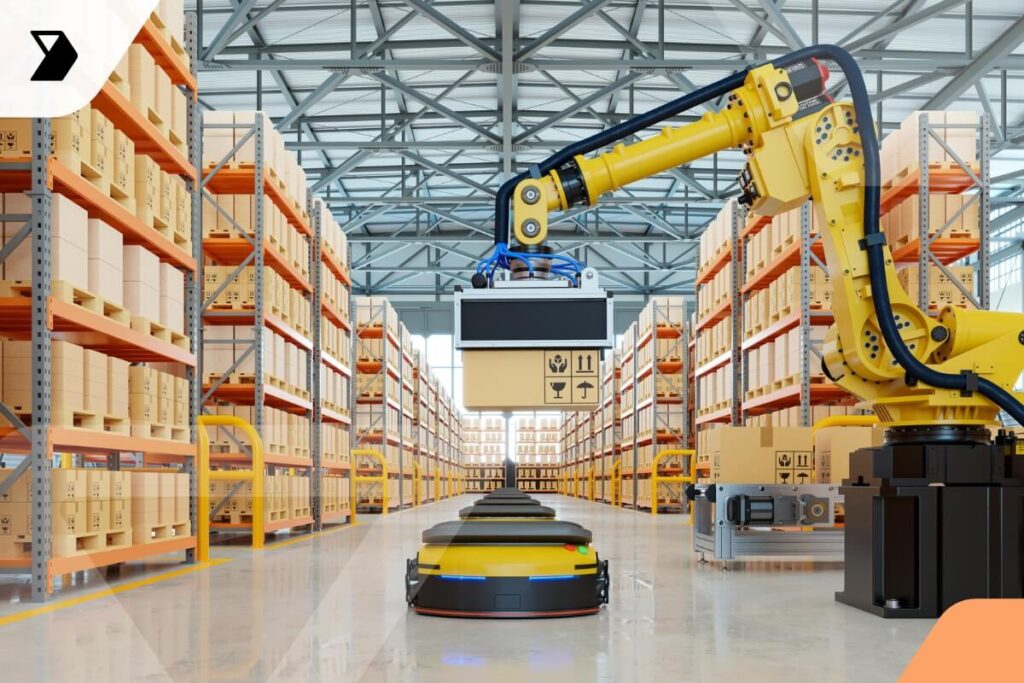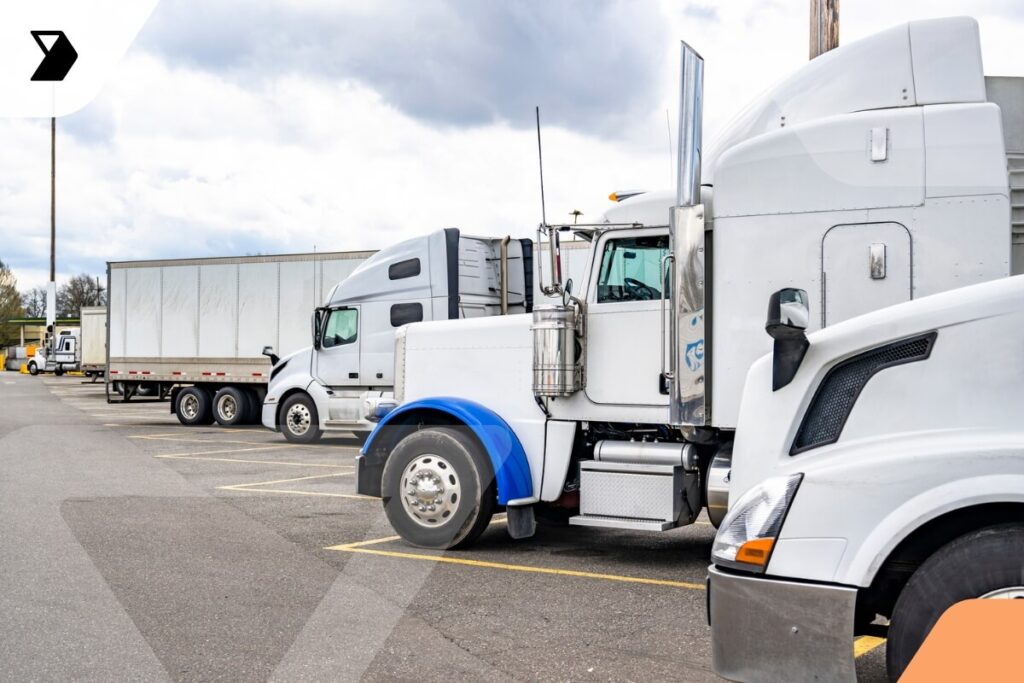Dedicated Lanes in Trucking: Better for Your Drivers?
May 14, 2020 “It takes a special breed to be a truck drivin’ man, and a steady hand to pull that load behind.” —Merle Haggard Let’s face it: Not all of us are cut out for a life on the open road. Some people prefer riding the same trodden trails, sleeping in their own bed at the end of the night, and seeing the same faces at their local bar and grill. And there’s nothing wrong with that. Fleets, after all, are made up of all types of drivers. As a fleet manager, it’s your job to determine which personalities.
Ready to transform your supply chain?


“It takes a special breed to be a truck drivin’ man, and a steady hand to pull that load behind.” —Merle Haggard
Let’s face it: Not all of us are cut out for a life on the open road. Some people prefer riding the same trodden trails, sleeping in their own bed at the end of the night, and seeing the same faces at their local bar and grill. And there’s nothing wrong with that.
Fleets, after all, are made up of all types of drivers. As a fleet manager, it’s your job to determine which personalities are the best fit for certain routes. By getting to know your drivers and understanding what makes them tick, you can theoretically assign them routes that align with their lifestyles. Happier drivers will in turn lead to improved performance, enhanced productivity, and less turnover.
One strategy that you should consider offering drivers are dedicated lanes. Let’s take a closer look at this concept and find out why some companies choose to incorporate these lanes into their strategies.
What’s a Dedicated Lane?
A dedicated lane is a route that a company gives to a single customer, guaranteeing ongoing service from a supplier at various intervals. For example, a construction company may partner with a local piping or lumber supplier for regular access to materials and components. Or a supermarket may partner with a dairy provider to make sure milk, eggs, and cheeses come like clockwork.
A dedicated lane can cover a short or long distance. But in most cases, they are local routes. Dedicated lanes can also have dedicated drivers or a team of drivers that alternates shifts. However, most dedicated lanes have specific drivers.
The Business Case for Dedicated Lanes
Competition is more intense than ever for trucking companies. Most organizations can no longer afford to be selective about contracts or routes. With fewer products in the supply chain, trucking companies need to be prepared to take whatever opportunities come their way.
For some businesses, this could mean changing things up and taking on projects they might have otherwise passed on. For example, long-haul trucking companies may need to pivot and consider taking on local routes with consistent schedules. They may even decide to cater to other industries they haven’t previously worked with.
Dedicated lanes are a pathway to consistent business. They’re also a great way to build customer loyalty and steady, long-term capital. Add it all up, and in this current economic climate, dedicated lanes could be extremely beneficial.
Do Operators Prefer Dedicated Lanes?
The short answer is: it depends—on the driver, their preferences, and of course, the type of truck they’re used to operating.
For example, an independent owner/operator with a business model that’s designed for long-haul trucking most likely will not be equipped to handle small, local routes. Likewise, a driver who uses company-owned vehicles but is trained to handle long-haul shipments may not have the training or desire to switch roles.
That said, let’s take a look at some of the pros and cons associated with dedicated lanes.
The Pros of Dedicated Lanes
1. Deep Knowledge of the Route
One of the upsides to running a dedicated route is that the driver will become an expert for that particular passage. They’ll quickly learn every rest stop, DOT hideout, and traffic system.
That’s not to say that having a dedicated lane is always easier (more on that below). But it typically requires less daily planning, allowing the driver to focus on other priorities.
2. Stronger Customer Relationships
Running a dedicated lane gives the driver an opportunity to build rapport with customers. Rapport, and consistency, are the building blocks to loyalty in this business.
Operators who have good people skills and enjoy building customer relationships are typically ideal for dedicated lane deliveries. This is an excellent position for someone who wants to take on a customer-facing role.
3. Better Home Lives for Drivers
Trucking can be a difficult lifestyle. For many drivers, trucking results in long periods on the road away from loved ones.
Owning a dedicated lane is an opportunity to spend more time at home with your spouse and ankle biters—instead of constantly toeing the white line.
Sounds like a pretty nice lifestyle, right?
Well, there are some disadvantages that you should be aware of, too.
Let’s explore them.
The Cons of Dedicated Lanes
1. Dedicated Lanes Are Tedious.
While some operators want consistency, others may see it as a nightmare. Running the same route day in and day out can be incredibly tedious, making some drivers long for the asphalt ocean.
Many people, after all, like the adventure of trucking and the thrill of seeing new places. You won’t get any of that when running dedicated lanes.
2. Dedicated Lanes Aren’t Always Pleasant.
Not all dedicated lanes are created equal.
While some can be pleasant to drive on every day, others can be more burdensome—with few rest stops, constant traffic, and of course, difficult customers. Dedicated lanes aren’t much fun when you have a hard customer to please.
3. Less Earning Opportunity
Operators who get paid per mile may want the opportunity to take on longer routes to earn extra income.
If you ask a driver to take on a dedicated lane, you’ll want to figure out the difference in pay first. You may have to restructure their compensation model. Otherwise, the driver may see the change as a demotion or a pay cut.
Tips for Providing Dedicated Lanes
As you can see, dedicated lanes can be highly beneficial for trucking companies when they’re done the right way.
Here are some tips to consider before working dedicated lanes into your business operations.
1. Plan Ahead.
As we mentioned above, not all drivers will want to run dedicated lanes. And some may even get spooked at the mere mention of the term.
Spend some time getting to know your drivers. Consider who may be open to this type of opportunity before you approach them. A little planning will go a long way here.
2. Be Flexible.
Situations can change for employees. For example, a newly married operator may want to spend time at home with their family and may not want a life on the road. At the same time, this situation could change months or years down the line.
Another example could be dealing with a sick family member. Drivers that may prefer long-haul routes may prefer to switch their schedule to accommodate the needs of their families.
Consider rotating drivers in and out of dedicated lanes based on their personal situations, if at all possible. Your employees will appreciate having flexible options based on their needs.
Drivers can be territorial about routes and may not want to change them. However, it’s a good idea to be flexible as a manager and consider making changes when possible. After all, employee attitudes change over time. The more you’re able to accommodate them, the better.
3. Be Selective.
Above all else, remember this: Dedicated lanes are not for everyone.
Forcing the wrong driver to take on a dedicated route could be a disaster for your organization. And it may even force the driver to quit. It could also send the message that you don’t have the needs of your workforce in mind.
4. Use Apps to Communicate.
You’re busy and don’t have the time to constantly check in on your drivers.
Instead, consider a better way forward: using a custom app to monitor driver workflows, collect feedback, and process route change requests.
Companies such as Vector can help you design your own custom app to collect information and keep in touch with your team.
This post was written by Justin Reynolds. Justin is a freelance writer who enjoys telling stories about how technology, science, and creativity can help workers be more productive. In his spare time, he likes seeing or playing live music, hiking, and traveling.
Continue reading
Ready to transform your supply chain?
Increase efficiency and productivity. Say goodbye to delays, handwriting errors, and time-intensive manual data entry.



